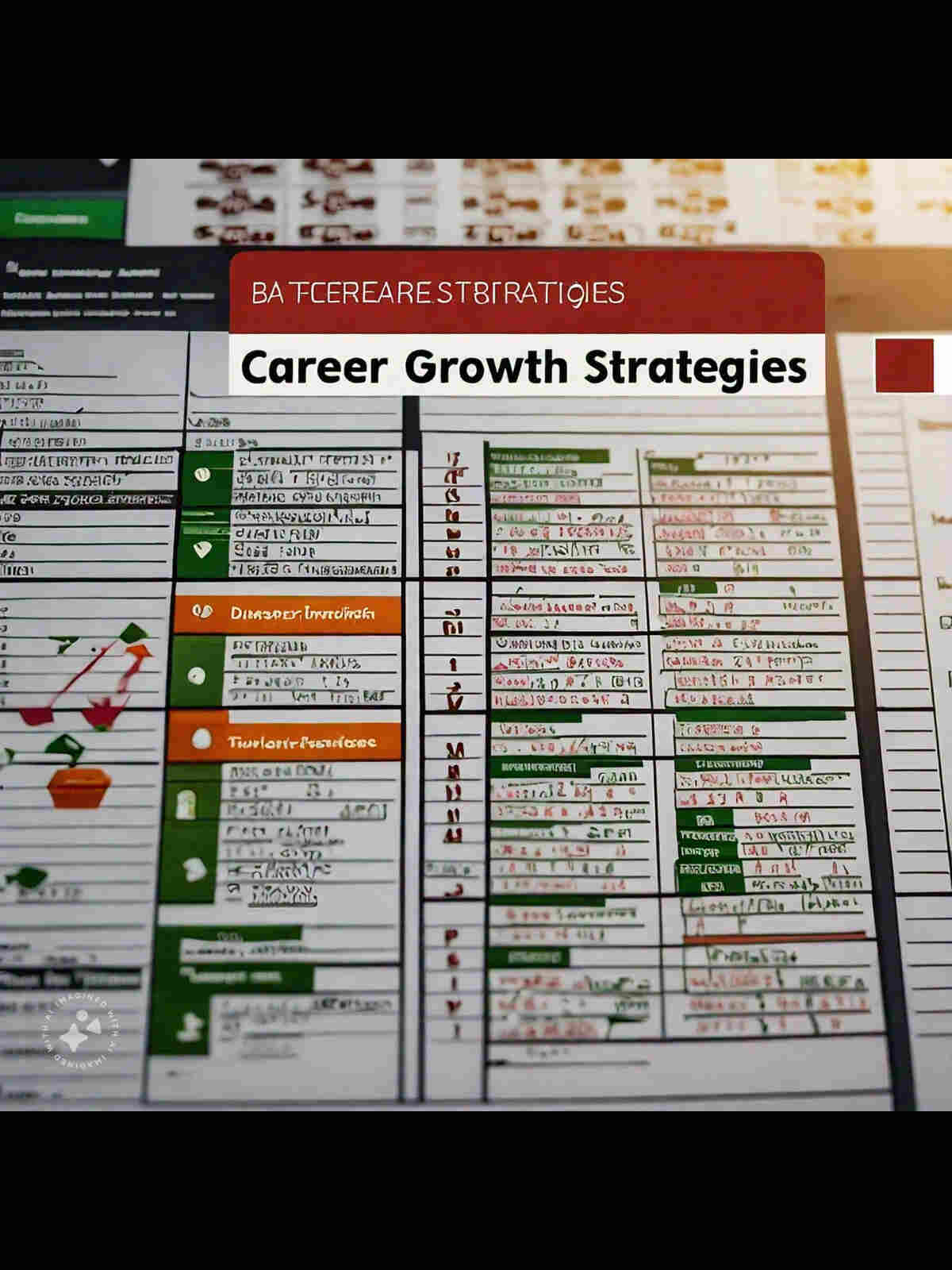In today's dynamic and competitive job market, advancing in your career requires not only hard work but also strategic planning and continuous learning. Whether you're aiming for a promotion, looking to switch careers, or simply want to enhance your professional skills, adopting effective career growth strategies can make a significant difference. Here are ten proven strategies to help you excel in your profession and achieve your career goals:
1. Set Clear Career Goals
To effectively navigate your career path, start by setting clear and achievable career goals. Define where you want to be in the short-term and long-term, and outline the steps needed to get there. Having specific goals provides focus and motivation, guiding your actions and decisions.
2. Develop a Professional Development Plan
Invest in your continuous learning and skill development. Identify areas where you can improve or acquire new skills relevant to your industry or desired role. Take advantage of training programs, workshops, online courses, and certifications to stay updated with industry trends and expand your expertise.
3. Build and Leverage Your Network
Networking is a powerful tool for career growth. Cultivate relationships with colleagues, industry professionals, mentors, and alumni networks. Attend industry events, conferences, and seminars to expand your network and stay informed about job opportunities, trends, and best practices.
4. Seek Feedback and Act on It
Constructive feedback is essential for professional growth. Request feedback from supervisors, peers, and mentors to gain insights into your strengths and areas for improvement. Use feedback to adjust your approach, enhance your skills, and demonstrate your commitment to continuous improvement.
5. Showcase Your Achievements
Effectively communicate your accomplishments and contributions to your organization. Keep a record of your achievements, awards, and successful projects. Use metrics and concrete examples to demonstrate your impact on business outcomes and showcase your value to employers or clients.
6. Develop Strong Communication Skills
Effective communication is crucial in any profession. Enhance your verbal, written, and interpersonal communication skills. Practice active listening, articulate your ideas clearly, and adapt your communication style to different audiences and situations. Strong communication skills can help you build rapport, resolve conflicts, and influence others positively.
7. Stay Current with Industry Trends
Stay informed about developments and trends in your industry. Subscribe to industry publications, follow thought leaders on social media, and join professional associations. Understanding industry trends and emerging technologies demonstrates your commitment to staying relevant and proactive in your field.
8. Cultivate Leadership Qualities
Leadership skills are valuable at every career stage. Take on leadership roles in projects or teams, even if informal. Develop qualities such as decision-making, problem-solving, delegation, and emotional intelligence. Effective leadership can open doors to new opportunities and showcase your potential for higher responsibilities.
9. Foster a Positive Professional Reputation
Your reputation and personal brand are essential assets in your career. Maintain professionalism, integrity, and reliability in all your interactions. Build a reputation as a team player, collaborator, and problem solver. A positive reputation can lead to referrals, recommendations, and new career prospects.
10. Seek Mentoring and Be a Mentor
Find mentors who can provide guidance, advice, and support based on their experiences. Learn from their insights and seek mentorship relationships that align with your career goals. Additionally, consider mentoring others, whether junior colleagues, students, or peers. Mentoring can enhance your leadership skills, expand your network, and contribute to your professional growth.
Conclusion
Achieving career success requires a proactive approach and commitment to continuous improvement. By implementing these ten career growth strategies, you can position yourself for advancement, seize new opportunities, and achieve your professional aspirations. Remember, career growth is a journey of learning, adaptation, and strategic planning. Stay focused, resilient, and proactive in pursuing your career goals, and you'll pave the way for long-term success and fulfillment in your profession.






